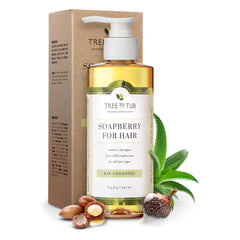Why Most Hypoallergenic Products Irritate Sensitive Skin

What does “hypoallergenic” really mean?
You’ve probably seen a variety of body care products labeled as “hypoallergenic”. This term is particularly valuable to those with skin sensitivities or conditions such as eczema, psoriasis or acne. But what does hypoallergenic even mean? Are there specific governance or regulations that companies need to follow in order for their products to be considered hypoallergenic?
According to the FDA, hypoallergenic products and cosmetics as “products that manufacturers claim produce fewer allergic reactions than other cosmetic products. Consumers with hypersensitive skin, and even those with ‘normal’ skin, may be led to believe that these products will be gentler to their skin than non-hypoallergenic cosmetics.”

How is the term regulated (or not)?
When a product is labeled hypoallergenic, this typically means that it is significantly less likely to cause allergic reactions. However, notice that the FDA states it’s really up to the manufacturer to decide how to label their products based on their claims. Plainly put, there are no industry standards or regulations for products that are labeled as hypoallergenic.

This means any company can remove colors and fragrances from their products and label it "hypoallergenic", even if the products still contain parabens, propylene glycol, sodium lauryl sulfate and other ingredients that are known to cause adverse effects including toxicity, inflammation and hormonal disruption. According to Medical Daily, the lack of regulation around the “hypoallergenic” label has led numerous brands to misuse the term purely as a marketing ploy.
As a result, most products labeled as hypoallergenic actually contain ingredients that are allergens. Researchers from the Loma Linda University School of Medicine in California tested an array of popular products used for children with eczema and found that 89 percent of the products contained at least one allergen, 63 percent contained two or more, and 11 percent contained five or more, despite labeling including “hypoallergenic,” “dermatologist recommended/tested,” “fragrance-free,” or “paraben free”.
Finding safer hypoallergenic products
Due to the shear lack of government oversight or regulations on hypoallergenic labeling, we recommend that you take additional measures to find those products that protect your skin and body, instead of harming.

The first measure you can take is paying attention to the products you’ve used in the past and make a note of those which have caused your skin to react or become irritated. Look through the list of ingredients of those products to identify any that can cause skin irritations or allergens. You can use My Sensitive Skincare’s list of ingredients to avoid. You can also use EWG’s Skin Deep Cosmetics Database to help you. Most of the time, it is the fragrances, preservatives, or and chemical surfactants that will cause skin reactions, even if the product you are using is labeled as “hypoallergenic”.
And rest assured, Tree To Tub is committed to creating truly hypoallergenic, ultra-gentle products, harvested straight from nature – check out our wholesome products here.







I put the Soapberries that come with my products and include them in cards and gifts I give, with the card about Soapberries! I love your products, my elderly, dry, exzema. Prone skin just eats up the lotions and creams! Thank you all
Lin